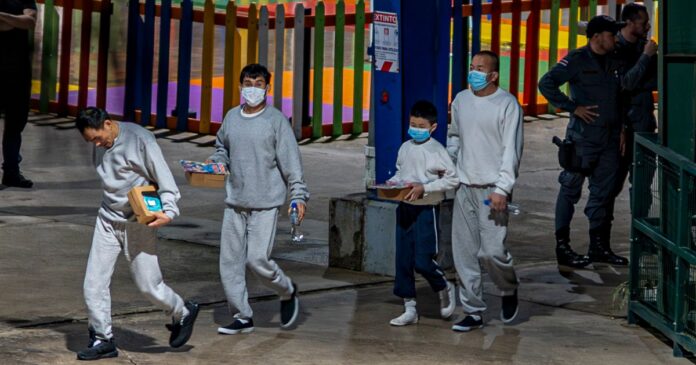If they refuse, Costa Rica is open to offering deportees refuge or will work with the U.N.’s International Organization for Migration, IOM, to facilitate travel to another third country.
“Costa Rica is a country that guarantees human rights,” he said. “We are going to guarantee that they are returned to safe countries. We cannot leave that to chance because of an ethical and moral commitment of our country.”
In the meantime, migrants will be detained in the border facility, where they will be accompanied by U.N. officials, the Red Cross and other aid-focused government entities to “guarantee their rights,” Badilla said.
The facility being used to hold migrants, a former factory, has faced criticisms for its conditions in the past.
During a visit by the AP in October 2023, migrants were fenced off in cramped facilities and said they felt like “prisoners.” Many slept in tents on the ground, where some said liquid from portable toilets leaked. Badilla said that facilities have since been improved, but the government has denied journalists access to the building.
The facility will also be processing a “reverse flow” of migrants from Venezuela, Colombia and Ecuador that previously sought asylum in the U.S. and now want to return home. Badilla said Costa Rica has seen between 50 and 75 migrants headed south entering the country a day.
IOM said in a statement to the AP that “we do not have direct involvement in the detention or restriction of movement of individuals” and that it was providing humanitarian support and supporting voluntary returns to their countries and “identifying safe alternatives for others.”

